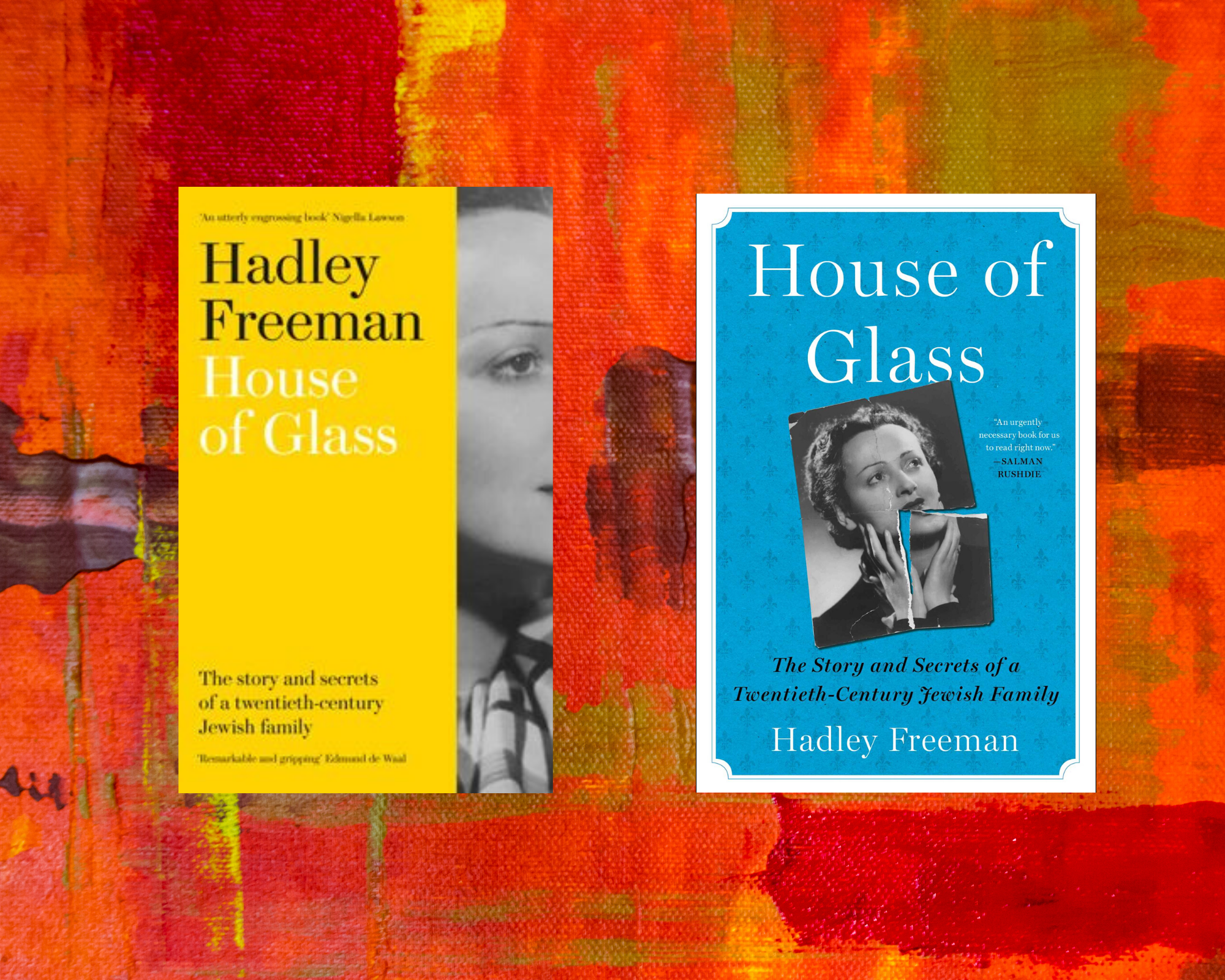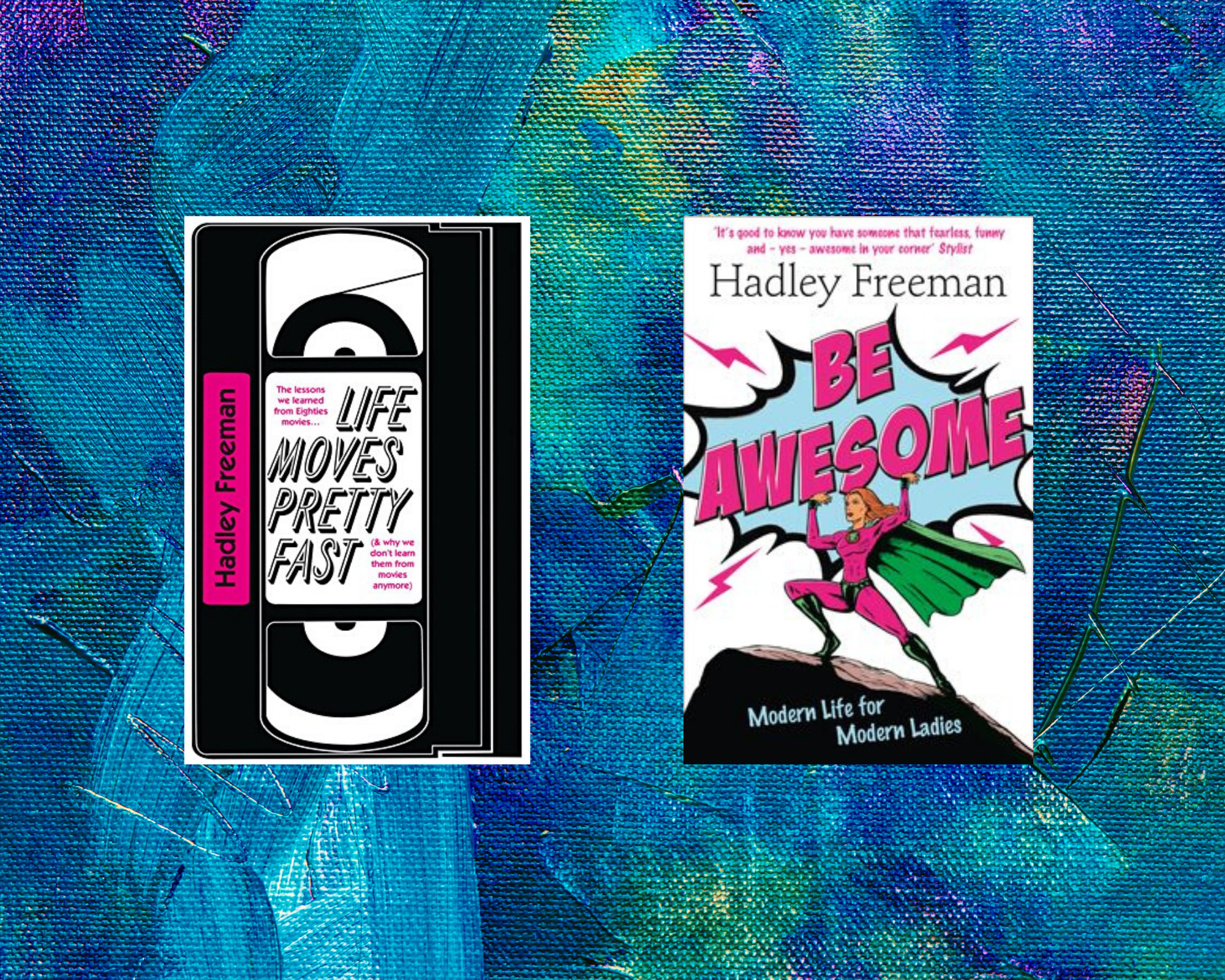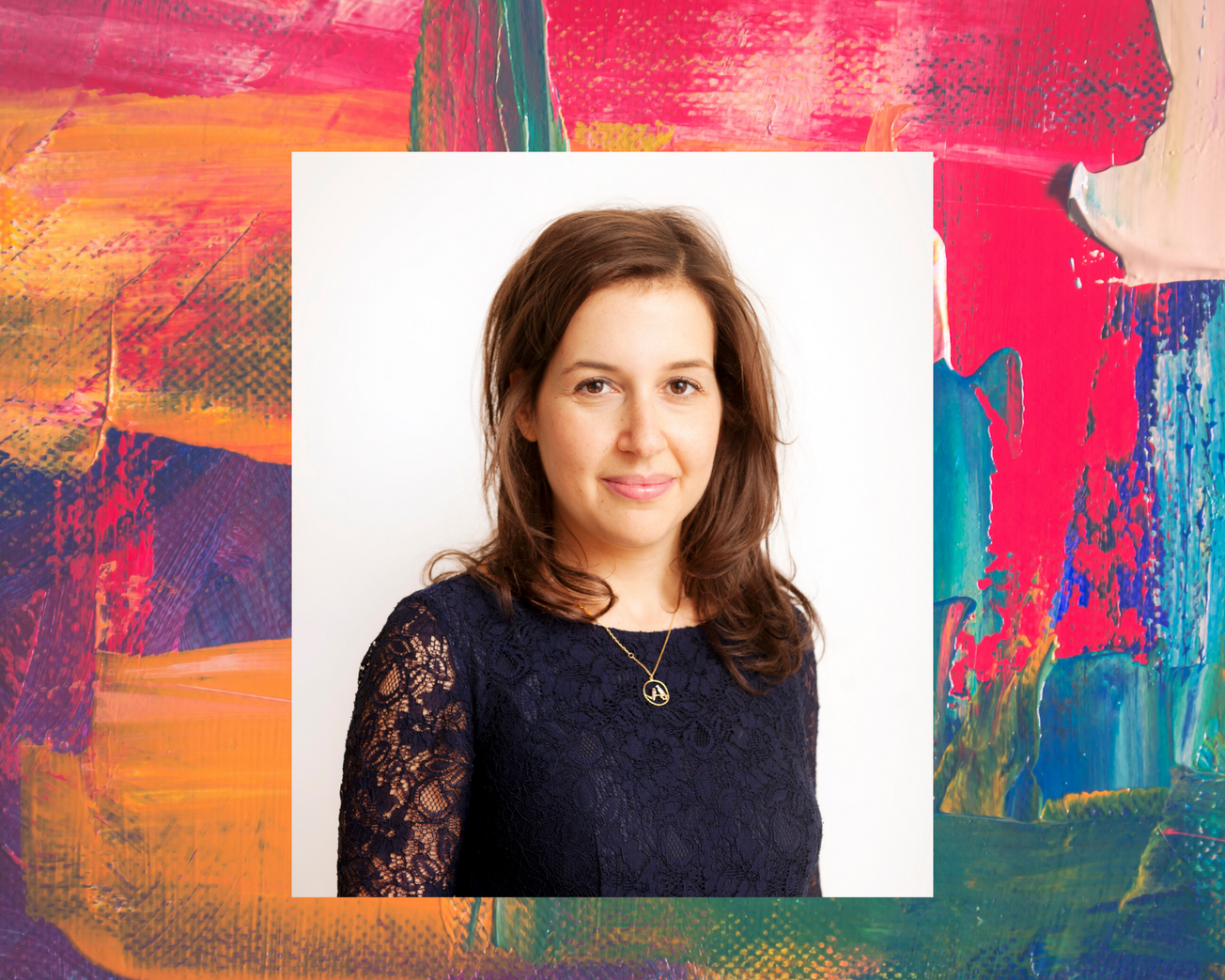By Ellie Brown, Investigations Correspondent
Content warning: mental health
'What's wonderful is when you meet a hero,' says Hadley. 'Someone like Jon Stewart or Michael J Fox...that's always really very heartwarming.'
A journalist at The Guardian for twenty years, Hadley Freeman has had a dazzling career. Not only does she regularly interview celebrities for the paper, she also writes about fashion, modern womanhood, and politics, making her one of The Guardian's most recognisable names.
She is also an author of four books, and today's conversation starts with her most recent work, House of Glass. Released last month, the book has been acclaimed by critics and made the Sunday Times bestseller list twice. This is even more impressive when you consider the timing of its release, which, to put it lightly, leaves something to be desired.
I managed to put out a book just as the bookshops shut, and I never got to do any events or signings (hence all my annoying self promo on here, sorry.) So I was certain the book would disappear. This news is properly 😲💃🍾🥂. Thank you so much to everyone who ordered a copy xxxx https://t.co/RQWfh3CU2E
— Hadley Freeman (@HadleyFreeman) March 28, 2020
Hadley and I are talking a week into lockdown; bookshops are shut and events, such as the Bristol Women's Literature Festival where I was originally due to interview her, have been cancelled. 'The book thing is the least of it,' she insists, when I voice my concerns about how the pandemic is affecting her work. 'Everybody has lost out.'
But she admits that the timing is 'pretty ironic.' House of Glass, a family memoir of Hadley's grandmother and great-uncles - the Glass siblings - took 'eighteen months of research and eighteen months of writing,' to finish - 'and it comes out now!' she cries in exasperation. One of the reasons it took so long to write was its personal nature; the Glass siblings lived through some traumatic events, and did not like to talk about the past. As Hadley tells me, 'it took a lot of time to break through that emotional pain, to be able to ask the questions and face the stories.'

However, she soon found out that the siblings thought about their past 'all the time' including Hadley's grandmother Sala, who indirectly provided Hadley with the leads to write the story. Sala's shoebox full of photos, letters, and documents from the past - found when Hadley looked through her grandmother's wardrobe as inspiration for a Vogue article - had been hidden by her throughout her life, and though its contents mystified the author, she could see they were important. 'I knew I had a story here, and it wasn't about fashion,' she writes in the book's introduction.
This was back in 2006 though, and 8 years after following up the clues in the shoebox, Hadley wasn't sure 'there was a book here.' It was another Glass sibling who indirectly convinced her otherwise. The chance discovery of her great-uncle Alex's unpublished memoir in 2014 gave the author crucial details about the Glass siblings' early lives, including their childhood in a Jewish Shtetl and move to Paris in the 1920s, and what happened to them during the Second World War. Some of the stories were extraordinary - her great-uncle, it turned out, was a famous Parisian couturier, and during the war escaped from a train bound for a concentration camp - but confirming them was not easy.
Then there was Alex. I knew Alex the best of the brothers, as he didn’t die until I was 21. But to describe him fully would take up more characters than exist on the whole of Twitter pic.twitter.com/u6FweyKkKD
— Hadley Freeman (@HadleyFreeman) April 16, 2020
One of the hardest tasks was interviewing the siblings' children - Hadley's father, uncle and cousins (the siblings themselves were not alive when she started researching the book). Hadley notes in the book that she put this part of the research off for as long as possible, and now tells me she was 'very very worried' about upsetting her relatives, particularly her father. But it turned out that these conversations were not upsetting; in fact, they were cathartic, as her relatives no longer had to 'suppress the thoughts' they had about the family's history.
For the twenty years it took her to write the book, Hadley had a full-time job at The Guardian; if she ever needed 'a break from Holocaust research' she tells me, she could write about lighter subjects there: 'celebrity, pop culture, fashion...if you can put it in a social context I always love that kind of writing.' Her other three books are also on these subjects, though she jokes that some were 'procrastination books' completed while she was avoiding work on House Of Glass. When I tell her I loved her book, Be Awesome: Modern Life for Modern Ladies, she is touchingly surprised - 'oh you liked that?' - a contrast with the warm 'thank you' with which she responds to my other praise.
As someone whose parents are loyal subscribers to The Guardian, I have been following Hadley's writing for years. I've always had the impression her job is incredibly glamorous, and cannot help but ask her - what is it like to meet A-listers and go to the Oscars? 'I love it,' she immediately responds. She has had some 'terrific' interviews with stars, 'and the ones that are terrible are always funny...to see someone being that arrogant or self entitled, you’re sort of fascinated.' Going to the Oscars, meanwhile, is 'hilarious' - she reckons she's been seven or eight times now, and it always feels 'like a privilege.' 'I know a lot of people hate the Oscars and think they're stupid,' she continues, 'but I'm afraid I'm one of the fans. So the fact that I get to go for my job is like a dream come true.’

We move on from her journalism career to the media in general. Hadley tells me she's observed a 'real shift' in the industry - from an emphasis on news and features to opinion pieces and columns. 'I don't think that's necessarily healthy' she comments 'and I say that as an opinion writer!' I suggest this is because more people are following individual journalists rather than papers online, and she agrees, adding that readers now look for 'the sections cater to them.' But she is clear that readers will always find good stories, and encourages young journalists to gain experience in finding and reporting these - rather than 'making yourself into a brand.'
Hadley's own break as a young journalist came when she was in her final year at the University of Oxford, when she won a Telegraph competition for young writers. 'On the back of this,' she says, The Guardian offered her a job - 'it was another time,' she adds wistfully, when I react with shock at this archaic hiring practice. Part of the reason she won was due to her practice writing articles, as during her time at Oxford she wrote for and edited the student paper, Cherwell.
Not only did her time at the paper help her get her job, it also 'taught [her] that [she] wanted to be a journalist.' Though, she adds, 'definitely not an editor.' Why not? ‘I am no good at commissioning, or having patience for terrible copy!' she cries, confessing that during her editorship she 'would spend the vacation before term writing most of the paper.'
BWLF may be cancelled but to help make up for it we have curated a special online hub packed with links to our writers' and speakers' work and wisdom. Enjoy! https://t.co/bUffdwZZIW
— BrisWomensLitFest (@bris_lit) March 19, 2020
Discussing her time at university brings us to the subject of Bristol and the mental health crisis which recently rocked our University. Hadley is aware of this - talking about it 'always gives [her] chills,' in part due to the fact that she could easily have studied here: 'you guys rejected me!'
This is serious though; Hadley has been open about suffering from anorexia as a teenager and only left hospital a year before she went to university. How did being in recovery affect her life as a young adult?
'You know, I missed three years of school. And I felt pretty insecure about that when I was at university and for a bit in my 20s too,' she says. Now, though, she looks back and thinks this was 'ridiculous' - 'everybody age 14 to 24 feels like they're catching up all the time! There was no need to feel I was behind them.' She is sympathetic to her younger self though: 'when you're in the midst of something, whether it's a mental health problem or you just have to take time out...it feels like this is everything in your life.' But, she reassures me, 'life is unbelievably long.' And while her time in hospital may pop up in the occasional dream, it 'is far behind [her] now.'
Life may be long, but all too soon our conversation is over. Having read Hadley's work avidly since I was twelve, I started the interview nervous - but she is just as down-to-earth, relatable, and funny as in her columns. Indeed, she is the exact opposite of the 'terrible' celebrity interviews she told me about, and I realise as I hang up that she knows how I feel. Heartwarming indeed.
Featured: The Guardian / Linda Nylind
House of Glass by Hadley Freeman is out now and available to buy here .









